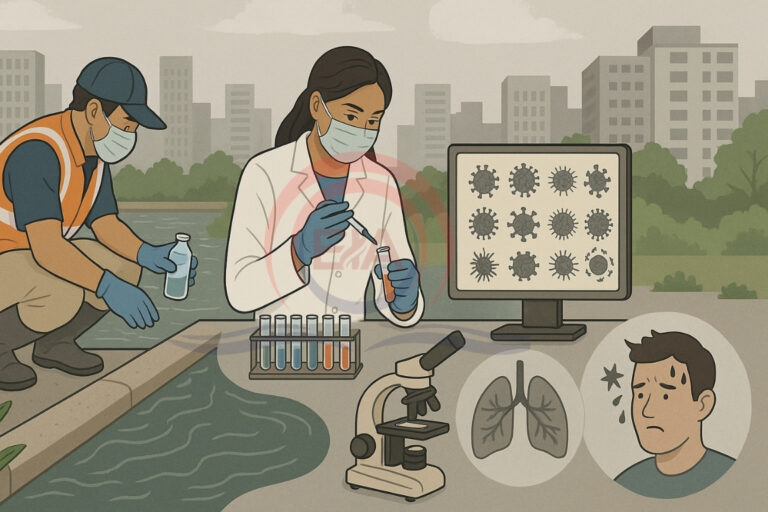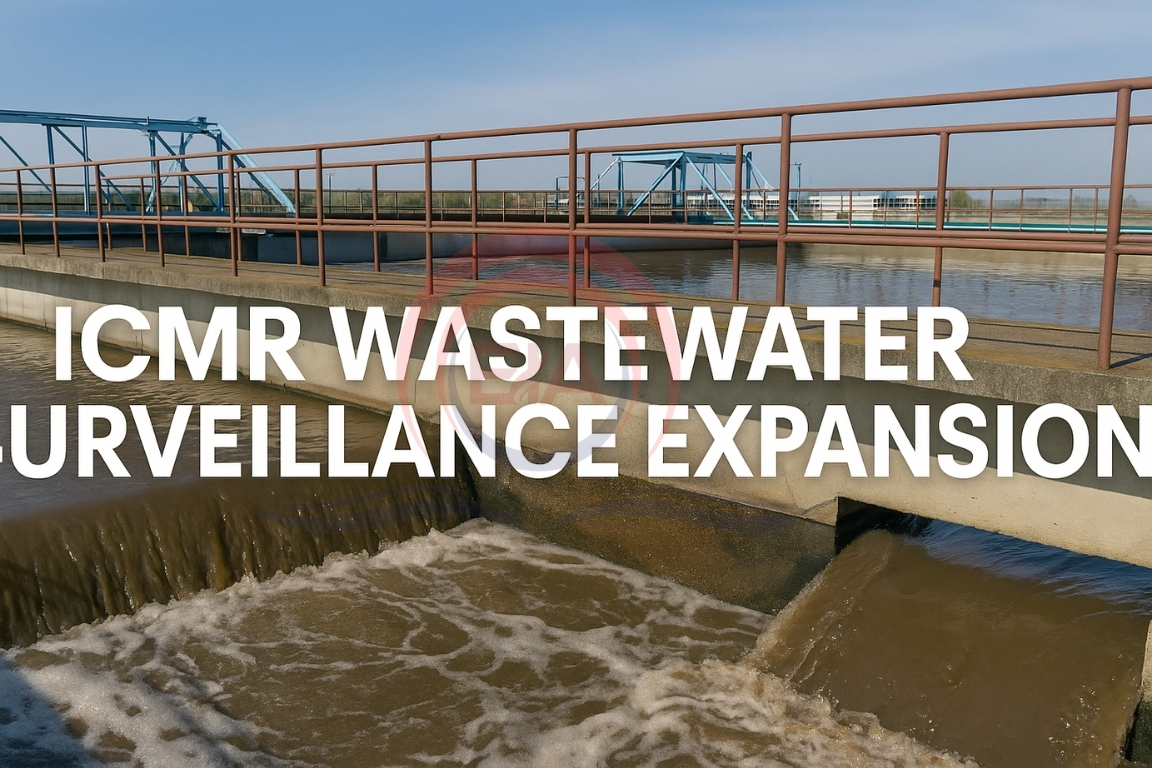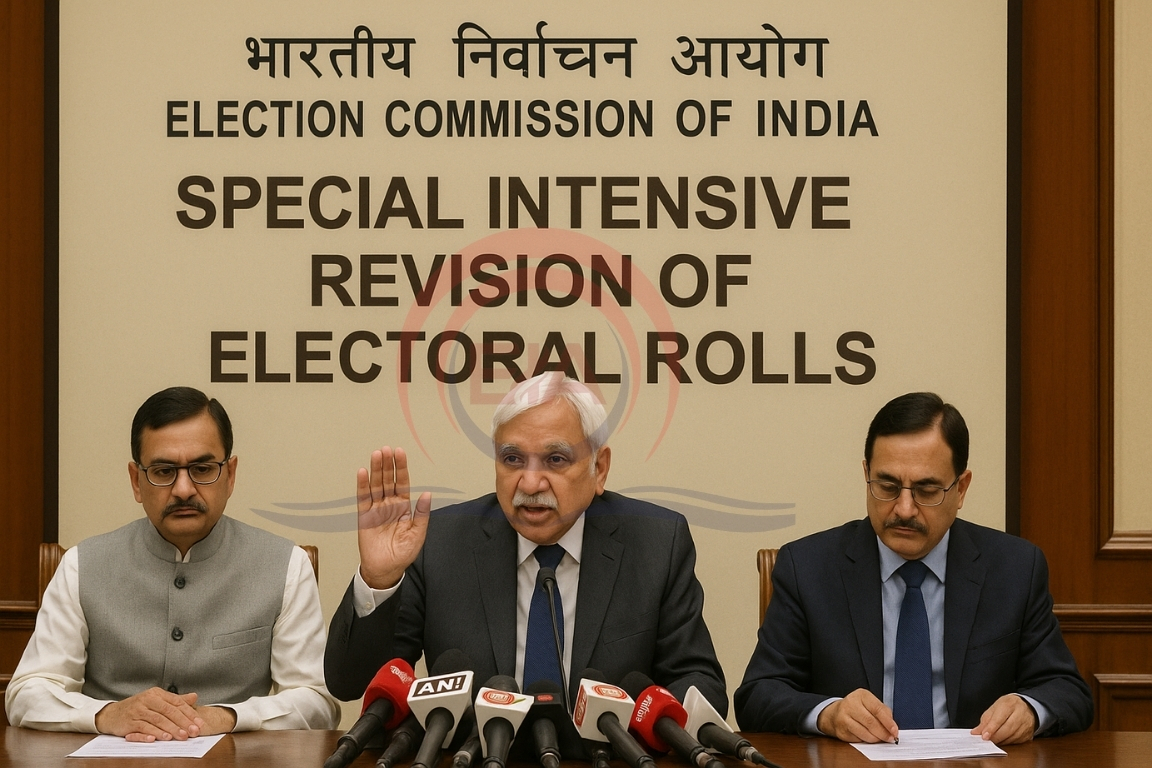The Indian Council of Medical Research (ICMR) is expanding its wastewater monitoring network from 5 cities to 50 cities to track 10 different viruses, aiming for early detection of outbreaks.
Background:
- Wastewater Surveillance – Method of testing sewage water to detect virus presence and track infection trends in a community.
- Already in use for COVID-19 and polio monitoring in selected locations.
- Helps identify rising infection trends before clinical cases surge.
ICMR’s New Initiative
- Expansion to 50 cities over the next six months.
- Will monitor 10 viruses, including:
- Avian Influenza Virus (AIV)
- COVID-19 virus
- Polio virus
- Other high-risk pathogens (names to be notified)
- Focus on both surface water and wastewater.
- Works as an early warning system for potential outbreaks.

Current Surveillance Systems
- ILI & SARI – Nationwide monitoring for Influenza-like Illness and Severe Acute Respiratory Illness.
- AMR Surveillance – Tracking antimicrobial resistance in hospitals across the country.
Why Wastewater Surveillance Matters
- Detects viruses before they cause widespread illness.
- Useful in areas with limited access to healthcare or testing.
- Can be applied for pandemic preparedness, seasonal flu, and emerging infections.
Antimicrobial Resistance (AMR) Concern
- AMR occurs when microorganisms resist the effects of medicines, making infections harder to treat.
- Leads to prolonged illness, higher treatment costs, and increased death rates.
- Wastewater monitoring can also help detect resistance genes in the environment.
Significance for India
- Strengthens public health preparedness.
- Provides data-driven alerts for timely interventions.
- Helps integrate environmental monitoring with disease control strategies.
Conclusion:
Expanding wastewater surveillance to 50 cities will greatly boost India’s ability to detect health threats early. This proactive approach can help control outbreaks before they escalate into public health emergencies.





